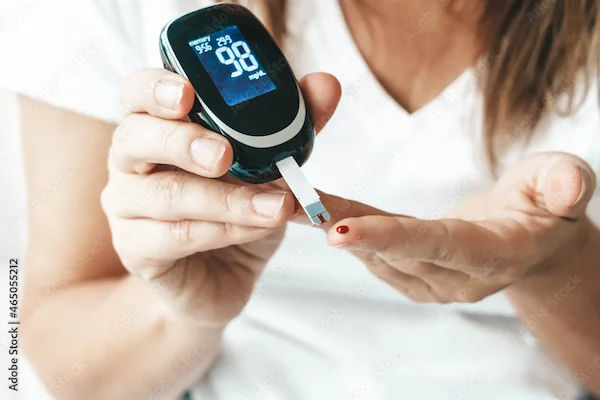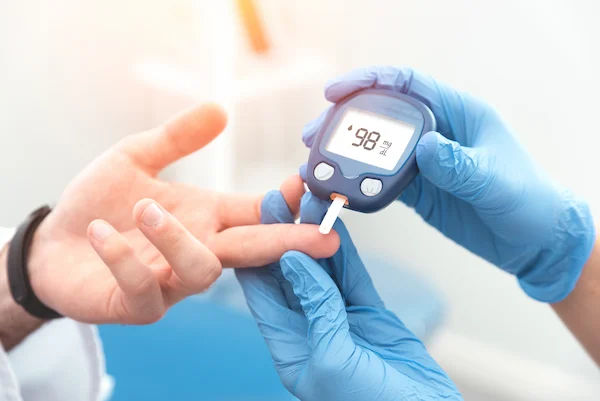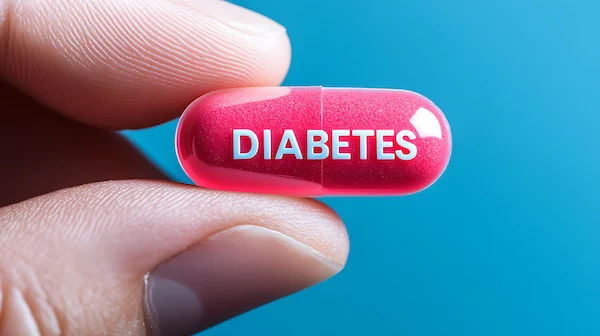Lower Your Insulin Levels: Simple Strategies
Learn how to lower insulin levels naturally with simple lifestyle changes—improve your diet, exercise routine, sleep, and more to prevent insulin resistance and boost energy.

Written by Dr. Mohammed Kamran
Reviewed by Dr. D Bhanu Prakash MBBS, AFIH, Advanced certificate in critical care medicine, Fellowship in critical care medicine
Last updated on 22nd Jul, 2025

Introduction
High insulin levels can lead to weight gain, insulin resistance, and even type 2 diabetes over time. The good news? You can take control with simple lifestyle changes. This article will guide you through easy, effective ways to lower insulin levels naturally and improve your overall health.
Understanding Insulin and Its Role
Insulin is a hormone produced by the pancreas that helps your body use sugar (glucose) from food for energy. When you eat, especially carb-rich foods, your blood sugar rises, and insulin helps move glucose into your cells. However, if your body produces too much insulin frequently (due to poor diet, inactivity, or insulin resistance), it can lead to health problems.
Why High Insulin Levels Are a Concern
Weight gain: Excess insulin promotes fat storage.
Increased hunger & cravings: High insulin can make you crave more sugar and carbs.
Higher risk of type 2 diabetes: Over time, cells may stop responding to insulin properly.
Fatigue & mood swings: Blood sugar spikes and crashes can leave you feeling tired and irritable.
Simple Ways to Lower Insulin Levels
Here are some simple ways to lower insulin levels:
1. Choose the Right Carbs
Not all carbs are bad! Focus on:
Fibre-rich foods (vegetables, whole grains, legumes): Slow digestion and prevent blood sugar spikes.
Low-glycemic foods (oats, quinoa, sweet potatoes): Release sugar slowly into the bloodstream.
Avoid refined carbs (white bread, pastries, sugary drinks): These cause rapid insulin spikes.
2. Eat More Protein & Healthy Fats
Protein (eggs, lean meats, fish, tofu) helps stabilise blood sugar.
Healthy fats (avocados, nuts, olive oil) slow digestion and reduce insulin spikes.
3. Try Intermittent Fasting
Giving your body longer breaks between meals (like 12-16 hours overnight) can improve insulin sensitivity. Start with a simple 12-hour fast (e.g., 8 PM to 8 AM).
4. Exercise Regularly
Physical activity helps your muscles use glucose more efficiently, reducing insulin resistance.
Strength training (weight lifting, resistance bands) builds muscle, which improves insulin sensitivity.
Walking after meals: Even a 10-minute walk helps lower blood sugar.
5. Manage Stress & Sleep Well
Chronic stress raises cortisol, which increases blood sugar and insulin. Try meditation, deep breathing, or yoga.
Poor sleep disrupts hormones, leading to insulin resistance. Aim for 7-9 hours of quality sleep.
6. Stay Hydrated & Avoid Sugary Drinks
Water helps flush out excess sugar.
Herbal teas & infused water are great alternatives to soda and fruit juices.
Get Your Symptoms Checked By An Endocrinologist
7. Consider Apple Cider Vinegar & Cinnamon
Apple cider vinegar (1-2 tsp in water before meals) may improve insulin sensitivity.
Cinnamon (½ tsp daily) has been shown to help lower blood sugar levels.
When to See a Doctor
If you experience frequent fatigue, intense cravings, or unexplained weight gain, it may be time to check your insulin levels. Apollo 24|7 offers easy blood tests and expert consultations to help you manage insulin resistance and prevent diabetes.
Conclusion
Lowering insulin levels doesn’t require extreme measures—small, consistent changes make a big difference. By eating wisely, staying active, and managing stress, you can improve insulin sensitivity and boost overall health.
Need personalized advice? Book a consultation with an Apollo 24|7 specialist today!
Get Your Symptoms Checked By An Endocrinologist
Get Your Symptoms Checked By An Endocrinologist

Dr. Nithin Reddy Modhugu
Endocrinologist
6 Years • MBBS, MD (General Medicine), DNB (Endocrinology)
Hyderabad
Dr. Nithin's Endocrine Clinic, Hyderabad
(100+ Patients)

Dr. Gayatri S
Endocrinologist
4 Years • Suggested Qualifictaion- MBBS, MD (Internal Medicine), DM (ENDOCRINOLOGY)
Nellore
Narayana hospital, Nellore

Dr. Shiva Madan
Endocrinologist
10 Years • MBBS , MD (General medicine) , DM (Endocrinology)
Bikaner
Sushma diabetes and Endocrine center, Bikaner

Dr. Venkata Rakesh Chintala
Endocrinologist
8 Years • MBBS,MD( GEN MEDICINE), DM ( ENDOCRINOLOGY)
Krishna district
Sanjeevani Hospital, Krishna district

Dr. Arunava Ghosh
General Physician/ Internal Medicine Specialist
9 Years • MBBS,MD(GENL.MED.),DM(ENDOCRINOLOGY)
Kolkata
VDC Clinic, Kolkata
.webp)



